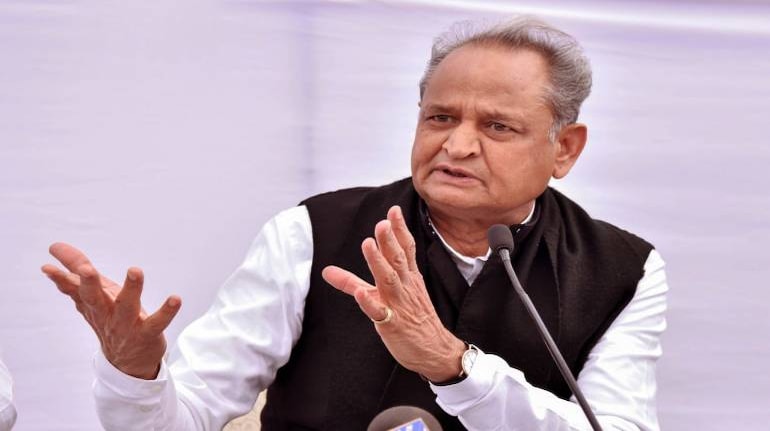



The Rajasthan election campaign was a battle of “delivery (of the Ashok Gehlot-led Congress government)” versus “promises (of the main opposition party and party in power at the Centre, the BJP)”. Gehlot has pitched his guarantees/promises against the manifesto points of the BJP accusing it of copying his schemes.
BJP is banking on the delivery of central government schemes under Prime Minister Narendra Modi’s leadership to woo the voters.
Government’s ‘Delivery’ Vs Opposition’s ‘Promises’Conceptually in electoral strategy, a ruling party cannot rely much on promises. For voters, the incumbent's delivery is of paramount importance. Delivery enhances the track record of governance and improves credibility of the incumbent government in the eyes of the voters. This improves the chances of the public believing in the promises being doled out in the serving government’s manifesto.
Based on this premise, we saw ruling parties in three of the four election states waiting for the opposition to release their manifesto and then presenting its manifesto. Opposition parties don’t have the luxury of waiting as it is promises and not delivery that they are evaluated on.
Gehlot claims to have delivered 96 percent of his promises for 2018. Clearly the one which stands out on non-delivery is the unemployment allowance scheme for the youth.
Similarly, PM Modi’s credibility of delivery is high especially in Rajasthan (Top 5 state in terms of popularity in 2019 general elections), and by showcasing this BJP hopes people would believe in the state unit’s poll promises.
In this backdrop, the Congress party released its manifesto “Jan Ghoshna Patra” on Tuesday, four days ahead of November 25, adding three key promises to its seven guarantees already announced. These include conducting a caste census, four lakh government jobs and a new scheme for recruitment at the panchayat level.
BJP has made several promises tweaking some of the central schemes and reviving some of its old schemes, while Congress has focussed on increasing the reach of its existing schemes.

Ashok Gehlot, taking a cue from Jayalalitha’s successful bid to end the revolving door mechanism in Tamil Nadu in 2016, launched a slew of schemes to woo voters. Schemes have been focussed on key voting segments like youth, women, poor, government employees spread across sectors like agriculture, women empowerment, social justice, rural development etc.
A closer look at these schemes suggest most of these are not cash transfer or DBT schemes, except for pension to elderly and widows on which the state government is spending more than Rs 1,000 crore annually.
Gehlot’s schemes fall into compensation for labour (NREGA), cashless schemes for health (Chiranjeevi), essentials (free power, food packets), social justice etc. Now these schemes may not have the same impact which a DBT scheme has.

For example, an individual who has enrolled in a Swasthya Bima Yojana, is not a beneficiary from day one, he/she is a potential beneficiary. The individual becomes a beneficiary when he/she falls sick and uses their health card to get free treatment. So enrollments cannot be construed as a similar status like a beneficiary.
In a DBT scheme like Laadli Behna or PM Kisan Nidhi, as soon as the first installment is released, the people enrolled turn into beneficiaries, and this has a higher and immediate impact. They have a higher potential to convert into a captive vote bank for the party than people who are mere card holders.
Why DBT MattersAccording to a paper by Eswaran Sreedharan on voting patterns by class in 2019 elections, one-fifths of households had received some money over the past month. The key nine welfare programmes had benefited between 13 percent and 34 percent of the respondents with a large proportion in each case crediting the Union government and hence BJP or Modi personally.
A free power or a free ration / food packet distribution also has a higher impact than a life/health insurance scheme, where based on eligibility you get or do not get benefits. The DBT schemes save cash outflow for families, and impact is immediate, not in the future. Even an LPG subsidised cylinder scores higher as a subsidy is credited to beneficiary accounts within some days after purchase.
Gehlot realised this lacunae and announced a Griha Laxmi Yojana in which women head of families will get Rs 10,000 per month which could lead to women empowerment. This is similar to the Ladli Behna scheme in MP which has created a lot of buzz for the BJP.
With this maze of schemes, and also promises, it becomes very difficult sometimes for the voter to distinguish between state and central schemes. In 2019 general elections, on an average 51 percent credited the central government for Top-7 schemes of Modi, while 33 percent the state governments.
It is also in many ways a battle of state government beneficiaries and central government beneficiaries as there is likely to be a big overlap as schemes are targeted towards poor and disadvantaged sections of society. And also a battle of current labharthis of Congress versus future labharthis based on BJP promises.
All this adds another layer of complexity to the delivery versus beneficiary battle in Rajasthan.
Amitabh Tiwari is a former corporate and investment banker-turned political strategist and commentator. Twitter: @politicalbaaba. Views are personal, and do not represent the stance of this publication.Discover the latest Business News, Sensex, and Nifty updates. Obtain Personal Finance insights, tax queries, and expert opinions on Moneycontrol or download the Moneycontrol App to stay updated!
Find the best of Al News in one place, specially curated for you every weekend.
Stay on top of the latest tech trends and biggest startup news.